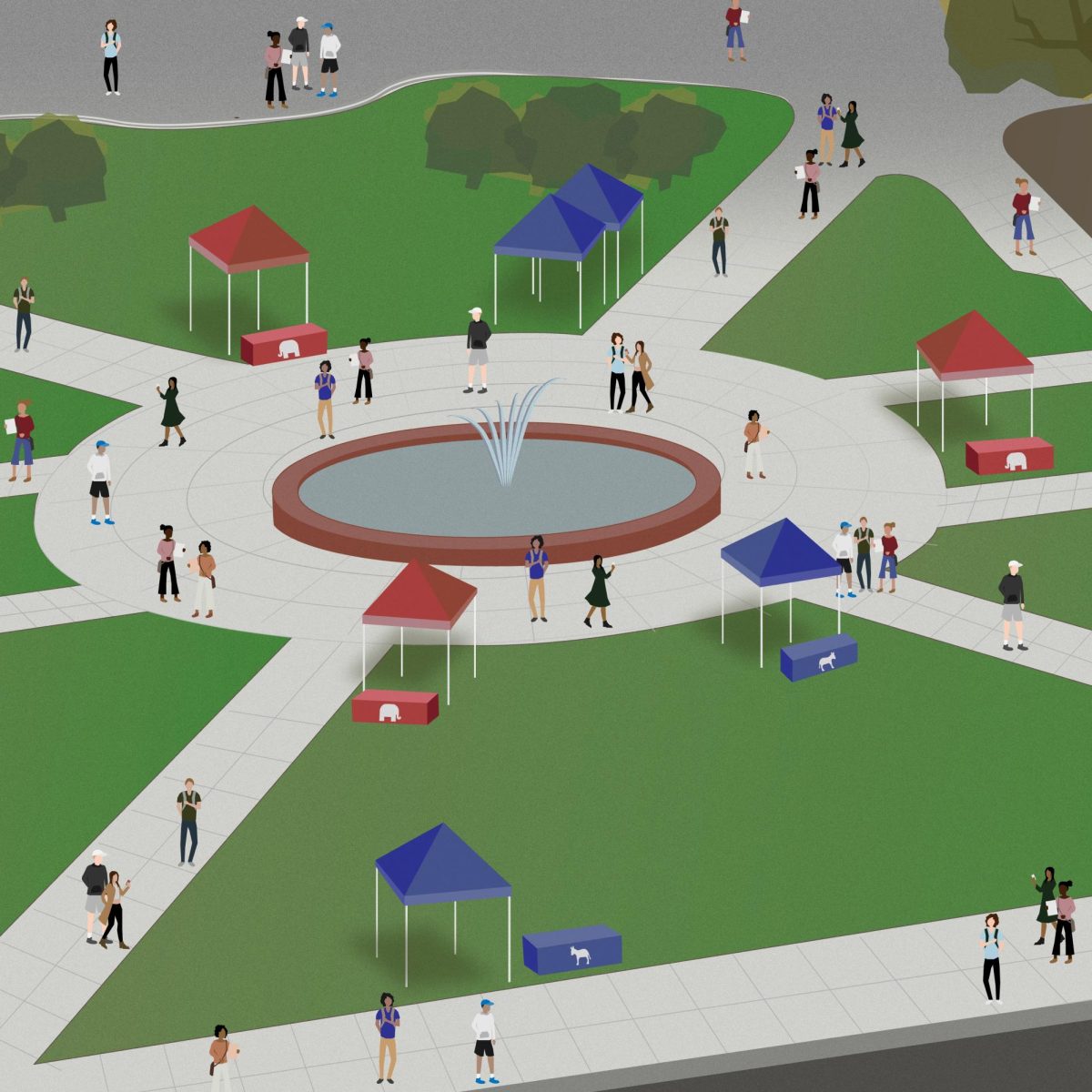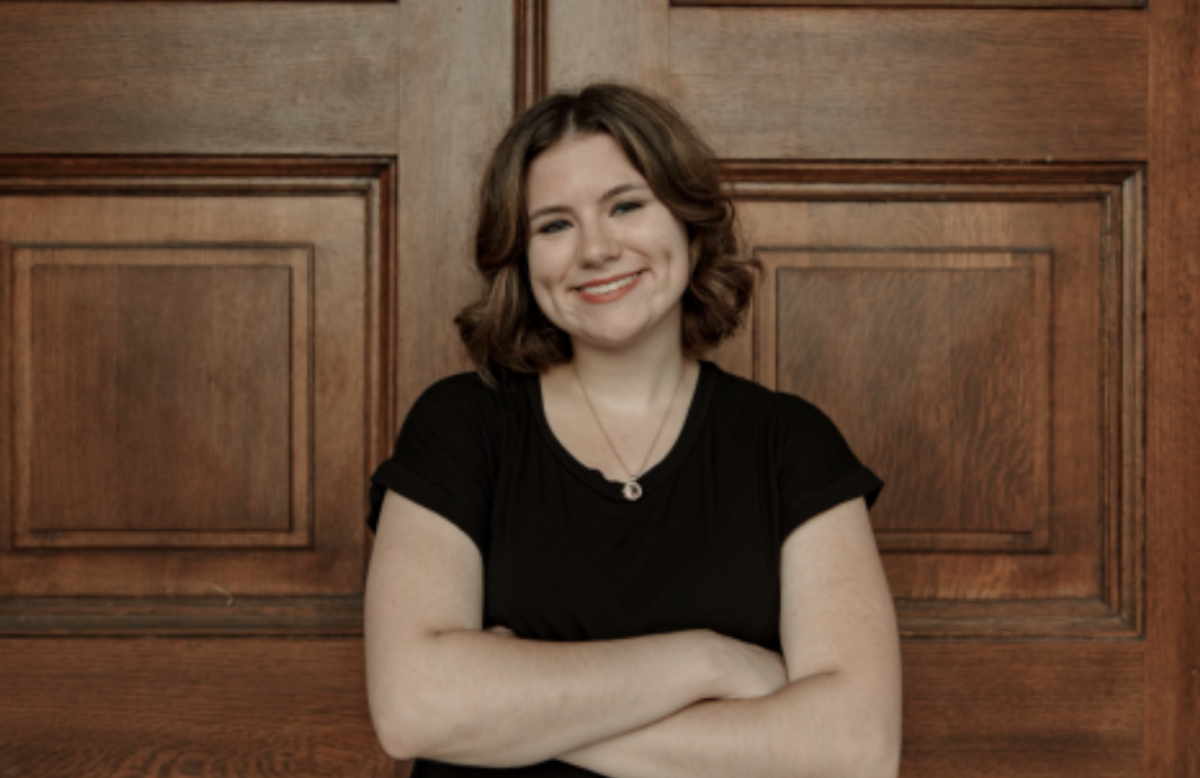When Junko Mori came to Wisconsin in the 1990s, Japan was experiencing an economic boom. To foster business collaboration, the Wisconsin Department of Public Instruction recruited native Japanese speakers to help elementary and secondary school students learn the language.
After one year working in a Waukesha school district, Mori decided to pursue advanced degrees at the University of Wisconsin. Today, she is the department chair of Asian Languages and Cultures.
Native versus non-native speakers
Like Mori, many other scholars from foreign countries come to UW to teach their native languages. These instructors bring an authenticity to the classroom that students highly value.
Lexi Gee, a UW student majoring in English with an Italian certificate, is a veteran of foreign language learning. She has studied Spanish since kindergarten and took French classes in college. Right now she is trying to teach herself French outside of the classroom.
From her own experience, Gee said she appreciates native speakers as foreign language teachers for their firsthand cultural experiences.
“It seems more authentic to me,” Gee said. “It seems easier to get in touch with the culture when you’re learning from somebody who grew up in that environment.”
Gee represents a large number of students who seek cultural exposure from native speakers. But foreign language professors at UW said it is unwise to overlook the impact of non-native speakers teaching those languages.
Heather Allen, an associate professor in the department of French and Italian whose native language is English, said there’s no significant difference between native and non-native language instructors. A French teaching assistant from France and one from the U.S. should have the same quality.
“It really is about the individual and how the individual carries out instructional techniques and strategies and what they bring to the classroom,” Allen said.
International student versus domestic jobs: applicants face a challenging landscape
But the preference for native speakers is by no means extinct.
Claire Kramsch, a German professor at the University of California, Berkeley, conducted research on what she called the “symbolic authority” of native speakers with regards to language instruction. In a 1997 column, she discussed the “de facto authority and prestige” that native foreign language speakers have. The emphasis on oral communication rather than grammar or translation has made native speakers even more favorable than their non-native counterparts, she wrote.
Kramsch revisited the study in 2015, concluding even as institutions today begin to value “multilingualism and transnational diversity,” the demand for native instructors keeps growing.
This phenomenon is met with passionate counterarguments from UW professors.
Mori questioned the term “native speaker” since it represents a sense of “authenticity” over the teaching ability. She said in a classroom setting, the ability to teach and engage is what matters most.

“Being a language teacher, you have to have a certain understanding of the linguistic mechanism and how it’s used, have the ability to explain and create activities in a nice sequential manner so people can progress,” Allen said.
The linguistic understanding and ability to help students progress that Mori mentioned are exactly the qualities UW seeks when hiring foreign language instructors, Grazia Menechella, associate professor of Italian, said.
Menechella said UW language departments never separate language from literature or culture. For that reason, departments need to assess the profile of candidates as scholars.
“We consider that their scholarly research and language skills had to be fitting to the opening in the department, and there’s no discrimination based on nationality.” Menechella said. “If you look at the list of our colleagues, it’s very mixed, but the non-native colleagues all have near-native language skills.”
In fact, some UW professors believe that compared to native speakers, non-native speaker instructors might have an advantage when engaging students.
Ernesto Livorni, associate chair of the French and Italian department, said non-native speakers drawn to languages because of passion might be more effective in delivering the best parts of that language and culture.
“The non-native speaker may feel at a disadvantage before the Italian instructors coming from Italy, but they have the ability to perceive the need of students and deliver exactly what draws them to that language they’re studying,” Livorni said.
Livorni said another advantage of non-native speakers is that they have firsthand experiences with learning a new language. They can relate to the learners’ perspective, which might yield a better understanding of what challenges students might face and how to overcome them.
More than 400 students from around the world take part in UW’s study abroad programs this fall
Allen, as a non-native speaking French professor herself, agrees relatability has a deep impact on foreign language learners. While some are excited to engage with native speakers, others can be equally intimidated and prefer someone similar to themselves.
“For every student who says, ‘Oh, I would really love to learn with a real native speaker,’ there’s another student on the other side saying ‘No, that’s really scary! I would feel much more comfortable to learn from someone who I know [has] been in my shoes, who have gone through the process themselves,”’ Allen said.
Foreign professors at UW
For UW foreign language instructors, language teaching is only one piece of the pie, Allen said.
There are multiple positions in language departments, Allen said. From graduate student teaching assistants to tenure-track full professors, each have distinct duties to perform.
Allen said tenured and tenure-track professors have responsibility related to three things: research, teaching and service.
Allen said most of her tenure-track colleagues with the rank of assistant, associate or full professor teach two courses per semester. The courses can be language or society and culture. The requirement for lecturers is to teach three courses per semester, so their metaphorical pie would be composed of mainly teaching and a small amount of service.
Graduate students’ responsibilities vary from those of professors or academic staff, Allen said. They tend to have 20 hours of contracted work per week, teaching one specific course three to four times each week. Meanwhile, they need to juggle their identities as full-time students taking three to four graduate-level courses and language teachers.
For tenured professors, the courses they teach might change according to their interests and backgrounds, Névine El Nossery, an associate professor in the French and Italian department, said.
She spent the first seven years at UW teaching French literature and culture, but after she got tenured the African Culture Studies department approached her to teach her native language, Arabic. Last semester, she also became the director of Middle East Studies program.
“When you get tenured, you have more freedom to pick what you really want to teach,” El Nossery said. “I have a training in Arabic literature, and since this is a culture very much related to who I am, to my root and to my belonging, it’s good for me to also teach something that is very close to my heart.”
UW foreign language enrollment differs from national decline
The UW commitment
Foreign language instruction is a clear academic focus at UW. The university currently offers 16 language-related majors through the College of Letters & Science, eight through the School of Education and 23 language certificates in total, according to the Languages at UW-Madison webpage.
This discussion of native and non-native foreign language instructors is deeply rooted in the standards UW hold in its language and cultural education, Mori said.
While the university offers a range of promises, Mori said it is important to understand the specific outcomes of different students to help better advance their language skills.
Some students want to use the language in real world situations, some want to find a job in that country and others want to be able to read literature in that language, Mori said. Therefore, Mori said it is essential for educators to analyze the context in which students wish to apply their language skills.
Livorni compared learning a foreign language to developing a different aspect of our own personality. The more we learn a language, the better we understand ourselves. People can gain a new viewpoint and way of life.
“It’s one thing to learn just to get credits and another thing to learn because ‘I’m in love with the culture, I’m plunging into the culture and trying to live that culture,’” Livorni said. “If you’re able to appreciate the good things, then your linguistic experience gets [better].”

At UW, language instruction is surrounded with cultural and societal contexts while including linguistic components, Menechella said. This combination helps students understand how foreign languages came about, how they evolved and how they are used today.
El Nossery said UW’s language departments embrace multilingualism and background diversity since they bring valuable cultures to the classrooms. Students welcome UW’s language programs because each instructor offers something unique.
For example, students would ask El Nossery about women’s conditions in the Arab world, things she directly experienced in her country of origin, Egypt. Native speakers offer firsthand knowledge of that culture, she said. But non-native speakers bring their own understanding and experience related to the language, which completes the picture.
“What we offer is culture through language,” El Nossery said. “If you’re teaching a language course, it doesn’t mean you’re only teaching words. You’re also teaching the spirit of the language. You’re also teaching the culture. You’re exposing the students to a variety of experiences that come from all over the world.”














